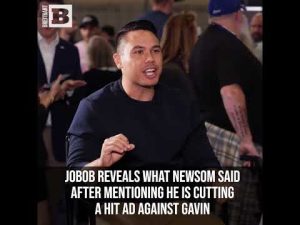In recent discussions, a bold assertion arose regarding the hiring practices at the Federal Aviation Administration (FAA). Congressman Jeff Van Drew of New Jersey has shone a glaring light on what he refers to as the “woke” agenda infiltrating government hiring methods. It is argued that this trend prioritizes diversity over competence, and is not only flawed but potentially dangerous. Van Drew has passionately highlighted how policies aimed at achieving diversity in government jobs might undermine the foundational principles of meritocracy that have long guided hiring practices in the United States.
The heart of the issue lies with the FAA’s five-year hiring plan, which was unveiled in October 2022. This plan emphasizes racial diversity significantly, which Congressman Van Drew labels as a disservice to both the agency and the American people. He points out that this focus on filling positions based on criteria unrelated to skills or qualifications could have dire implications, especially in an industry that deals with public safety. After all, when one boards an airplane, passengers would hope that the pilot’s selection was based on flying skills, not filling diversity quotas!
Furthermore, the Congressman reminded viewers that the Supreme Court has declared any form of discriminatory hiring practices based on race to be unconstitutional. This ruling, alongside the push for documents and discussions supporting diversity over qualification at federal agencies, raises eyebrows and sparks concern. While proponents of the agenda might argue it promotes equity, Van Drew argues it instead leads to placing unqualified individuals in critical roles, thereby endangering lives—a point that cannot be taken lightly.
The criticism extends beyond just hiring practices. It begs a larger question about how such policies have infiltrated many levels of government, potentially jeopardizing not just companies but vital institutions. Mentioning other companies like Bud Light and Disney, which suffered backlash due to perceived virtue signaling, Van Drew suggests that it isn’t just businesses that must tread carefully; government agencies should be held to a higher standard, given their direct impact on public safety and national security.
In a world where diversity can be perceived as a double-edged sword, combating the “woke” culture that underpins these hiring practices has become priority number one for many conservatives, including the Congressman. As they rally against such measures, they assert the importance of returning to a system where qualifications rule the day. Any notion of promoting an agenda which elevates identity over ability is deemed “irresponsible,” and the need for accountable and qualified leadership in government agencies has never been clearer.
As the debate continues, one thing is certain: the push for an America First agenda aims to restore the spirit of meritocracy, where talent, skills, and dedication come first, and where being qualified for the job is the ultimate checkbox to be ticked. The coming months are sure to reveal whether this rallying cry will resonate with voters and lead to a shift in hiring practices, reviving the core values that built America into the powerhouse it is today.







